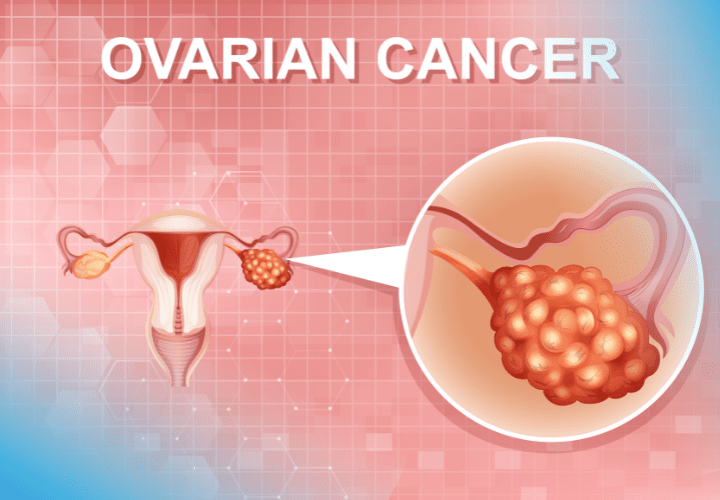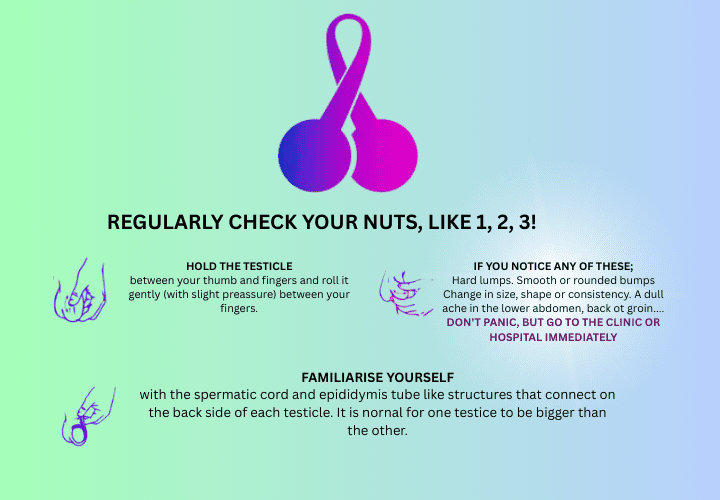Early Warning Signs of Ovarian Cancer

Early Warning Signs of Ovarian Cancer
- onco
- March 9, 2023
Ovarian cancer is a disease in which cancer cells form in the ovaries, the female reproductive organs that produce eggs. Unfortunately, ovarian cancer often has few symptoms in its early stages, making it difficult to diagnose. It means that the cancer is often not detected until it has spread to other parts of the body, which makes it more difficult to treat. In order to receive ovarian cancer treatment or therapy as soon as you detect any of these symptoms, it is crucial to be aware of the early warning signs of ovarian cancer.
The following are the most common early warning signs of ovarian cancer:
Bloating: A feeling of bloating or pressure in the abdomen is one of the most common early warning signs of ovarian cancer. This can be accompanied by a feeling of fullness, even after eating a small amount of food.
Abdominal Pain: Abdominal pain or discomfort is another common symptom of ovarian cancer. This pain can be a dull ache, a sharp stabbing pain, or general discomfort.
Changes in Bowel Habits: Changes in bowel habits, such as constipation or diarrhoea, can be an early warning sign of ovarian cancer.
Unexplained Weight Loss: Sudden or unexplained weight loss can also be a symptom of ovarian cancer. This weight loss can be accompanied by a feeling of weakness or fatigue.
Pelvic Pain: Pain or discomfort in the pelvic area is another early sign of ovarian cancer. This pain can be a constant ache or a sharp pain that comes and goes.
Increased Abdominal Size: An increase in abdominal size or swelling can be an early warning sign of ovarian cancer. This increase in size can be accompanied by a feeling of pressure or fullness in the abdomen.
Urinary Symptoms: Changes in urinary habits, such as a need to urinate more frequently or an urgent need to urinate, can also be a symptom of ovarian cancer.
So if you experience any of these symptoms, it is important to seek medical attention as soon as possible. Your doctor will be able to perform a physical exam and any necessary tests to determine if you have ovarian cancer.
Risk elements for ovarian cancer:
There are several factors that can increase the risk of developing ovarian cancer. These include:
Age: Ovarian cancer is more common in women over the age of 50.
Family History: Women with a family history of ovarian, breast or colon cancer are at an increased risk of developing ovarian cancer.
Reproductive History: Women who have had no children, had children later in life, or used hormone replacement therapy are at an increased risk of developing ovarian cancer.
Infertility: Women diagnosed with infertility or undergoing fertility treatments are at an increased risk of developing ovarian cancer.
It is essential to keep in mind that not all women who experience these symptoms have ovarian cancer. However, if you experience any of the early warning signs of ovarian cancer, it is important to pursue medical attention as soon as feasible.
Procedures to Lower Your Risk of Ovarian Cancer:
Although there is no proven way to prevent ovarian cancer, but reducing the risk of ovarian cancer can be achieved by adopting a healthy lifestyle and making certain lifestyle changes. Here is the following advice that may be helpful::
Maintain a healthy weight: Being overweight or obese can increase the risk of ovarian cancer. Keeping your body weight within a healthy range can help reduce the risk.
Exercise regularly: Physical activity is linked to a reduced risk of ovarian cancer. Make an effort to work out for at least 30 minutes every day.
Read More Blog: – Physical Activity And Cancer Risk
Eat a healthy diet: Eating a diet rich in fruits, vegetables, and whole grains and low in processed and red meat can reduce the risk of ovarian cancer.
Read More Blog: – How Your Dietary Habit Influence Cancer Disease
Limit alcohol consumption: Drinking alcohol can increase the risk of ovarian cancer. Limit alcohol consumption or avoid it altogether.
Use oral contraceptives: Using oral contraceptives for several years can reduce the risk of ovarian cancer.
Avoid using talcum powder in the genital area: Regular use of talcum powder in the genital area is linked to an increased risk of ovarian cancer.
Consider genetic counselling: If you have a family history of ovarian cancer, you may be at a higher risk. Consider genetic counselling to assess your risk and discuss preventive measures.
Remember, these tips are not guaranteed, and it is important to talk to your doctor about your individual risk and what steps you can take to reduce it.
In conclusion, the early warning signs of ovarian cancer can be subtle and easily overlooked. However, it is essential to be aware of these symptoms so that you can seek medical attention as soon as possible if you experience any of them. If you have a family history of ovarian, breast, or colon cancer, or if you have any other. When it comes to treating ovarian cancer, choosing the right hospital can make a big difference in the outcome of the treatment. Oncoplus, a specialized hospital for ovarian cancer treatment, can provide the necessary resources, expertise, and advanced technology to help patients get the best possible care. Depending on how far cancer has gone, our experts will choose the optimal course of action, which almost certainly involves combining two or more therapies.
Recent Posts
-
Can Testicular Cancer affect fertility?
April 23, 2025
-
Why are Breast Cancer Cases Increasing Around the World?
April 17, 2025





Leave a Reply